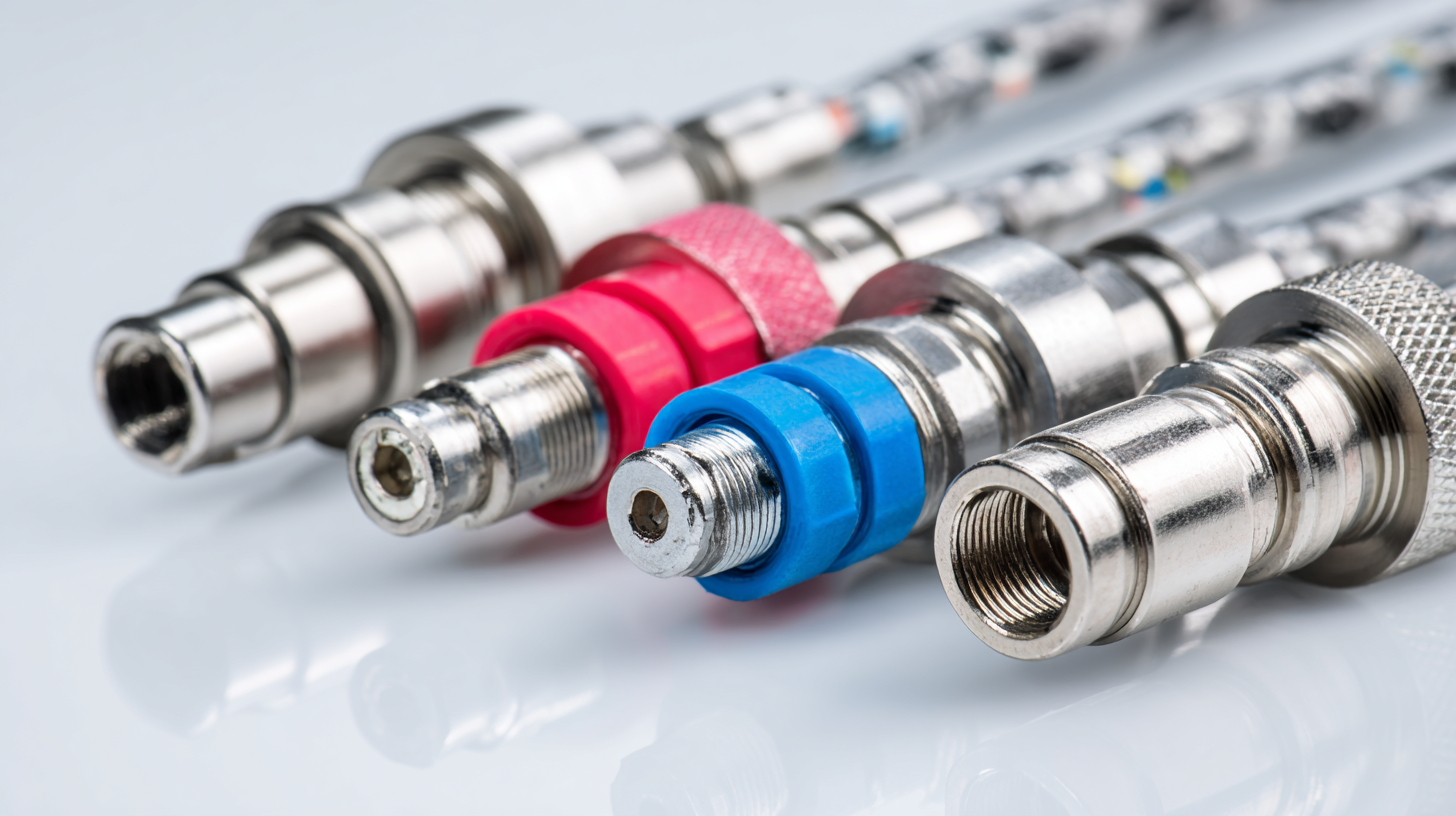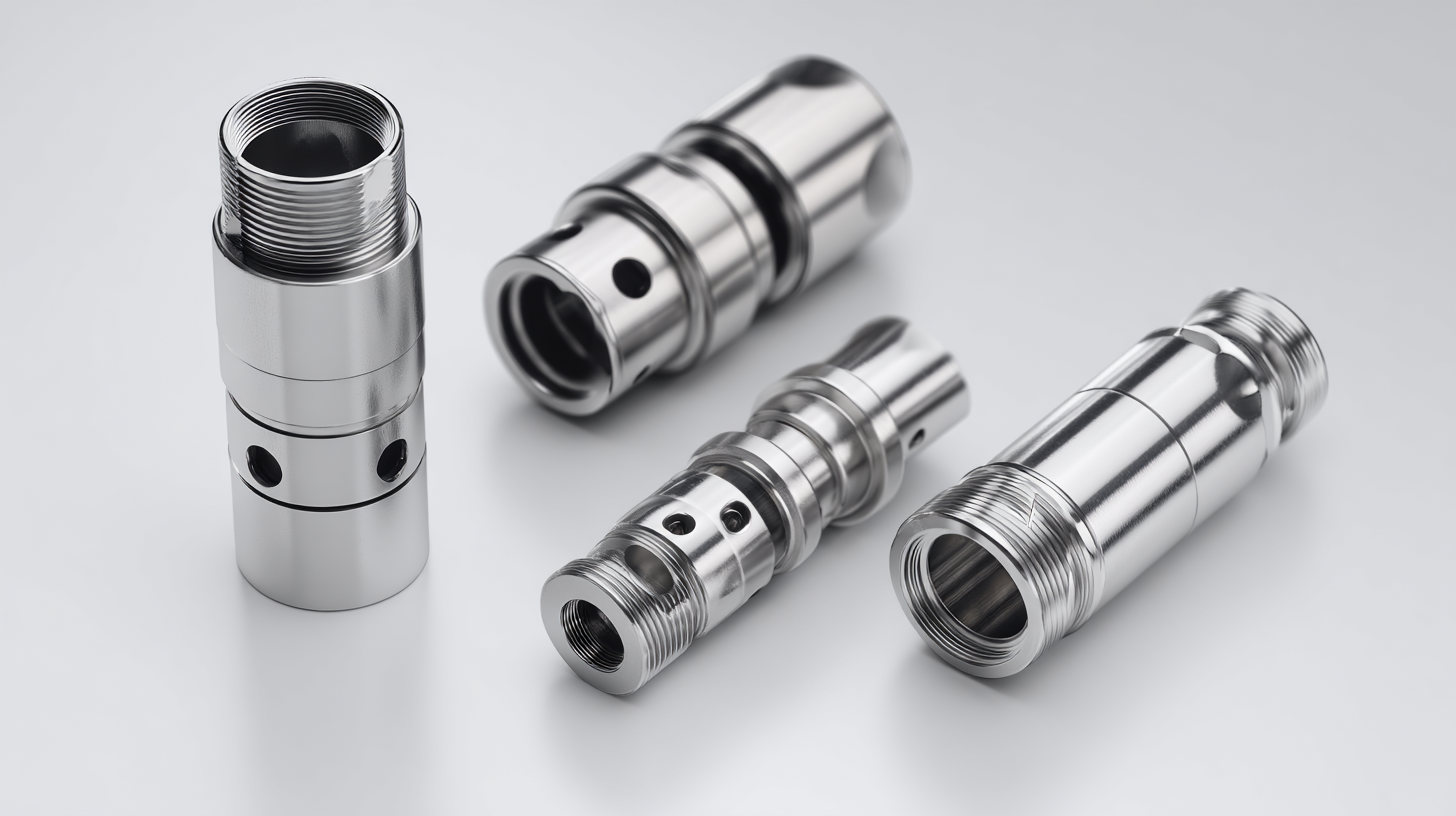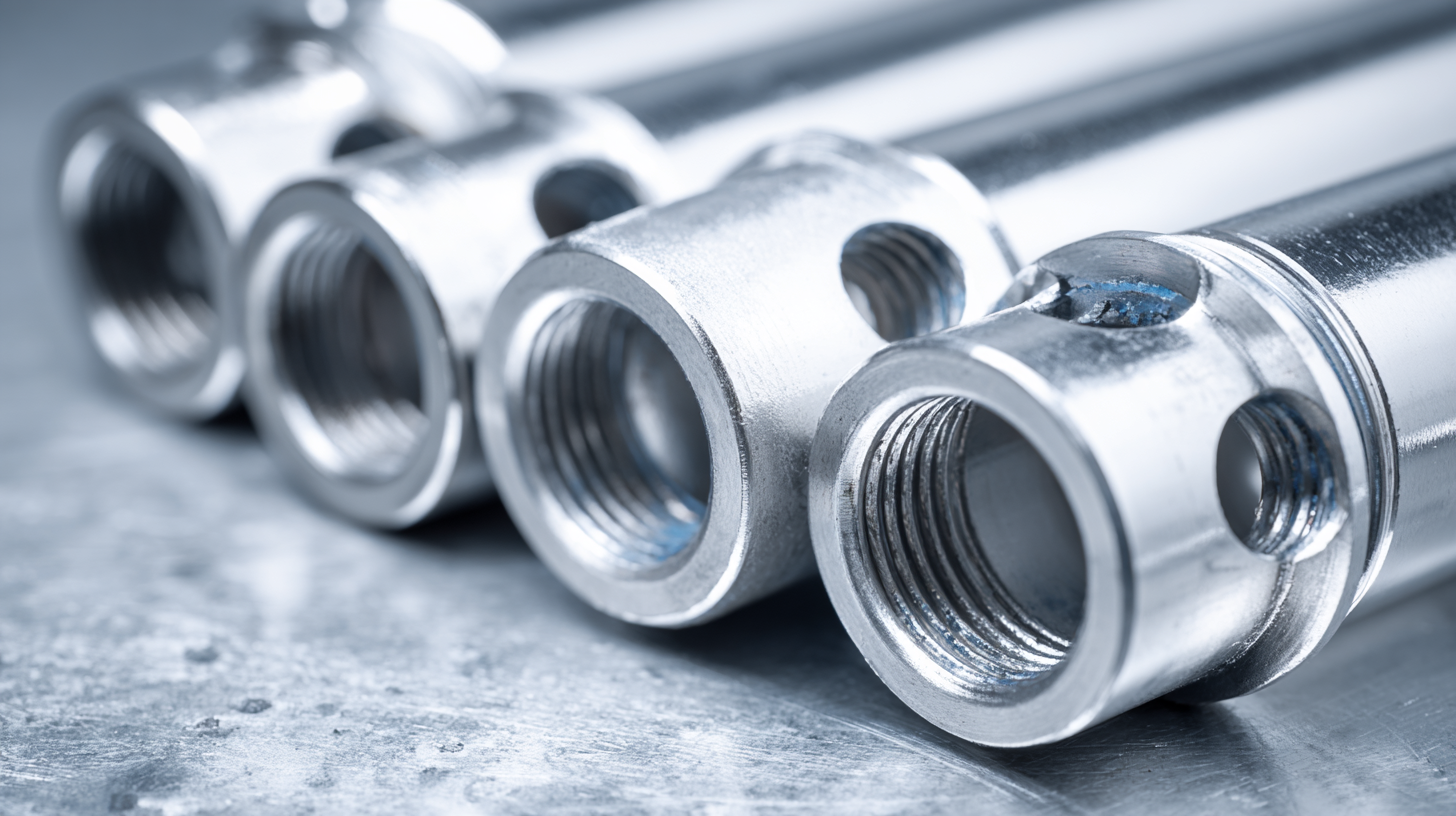
In an increasingly interconnected world, the demand for reliable and efficient connections in various industries has never been greater. According to a recent market research report by Global Industry Analysts, the global market for connectors is expected to reach approximately $36 billion by 2026, with metal circular connectors playing a pivotal role in this growth due to their robustness and versatility.
 These connectors are particularly favored in industries such as aerospace, automotive, and industrial automation, where performance and durability are critical. Choosing the right metal circular connectors involves understanding specific application requirements, environmental conditions, and compatibility with existing systems.
With the right guidance, businesses can enhance performance, ensure safety, and reduce maintenance costs, making informed decisions in the selection process crucial for operational success.
These connectors are particularly favored in industries such as aerospace, automotive, and industrial automation, where performance and durability are critical. Choosing the right metal circular connectors involves understanding specific application requirements, environmental conditions, and compatibility with existing systems.
With the right guidance, businesses can enhance performance, ensure safety, and reduce maintenance costs, making informed decisions in the selection process crucial for operational success.
When selecting metal circular connectors, it's essential to understand the various types available to ensure that you choose the right one for your specific application. Metal circular connectors can be categorized based on several factors, including the number of contacts, shell size, and environmental resistance. A crucial element to consider is the contact configuration, which affects how the connectors perform under different conditions and influences their ability to handle signal integrity.
Another important distinction lies in the materials used for the connectors. Stainless steel, for instance, is often chosen for its robustness in harsh environments, while aluminum connectors may be favored for their lightweight and cost-effectiveness. Additionally, connectors with environmental sealing, such as IP67 or IP68 ratings, provide superior protection against dust and moisture, making them ideal for outdoor or rugged applications. By evaluating these factors—contact configuration, material choices, and environmental resistance—you can make a more informed decision that aligns with your industry's specific requirements.

When selecting metal circular connectors for your industry, several key factors need to be considered to ensure optimal performance and longevity. First, the environmental conditions in which the connectors will operate play a critical role. For example, connectors used in marine or industrial settings must meet specific IP ratings for dust and moisture resistance. According to a recent industry report, connectors with an IP67 rating significantly reduce failure rates, prolonging equipment life and minimizing maintenance costs.
Another essential factor is the electrical requirements, including voltage, current, and transmission speed. Ensuring that the selected connectors can handle the operational demands without overheating or degrading is vital. Studies indicate that using connectors specifically designed for high-frequency applications can enhance signal integrity, making them ideal for industries such as telecommunications and aerospace.
**Tips:** When choosing connectors, always verify their compliance with industry standards like MIL-SPEC or IEC. Additionally, consider modular designs that allow for future upgrades or repairs without replacing the entire connector system. Lastly, consult with manufacturers who provide detailed specifications and testing results to ensure compatibility with your specific applications.
When selecting metal circular connectors for your industry, it's crucial to consider how environmental conditions can significantly impact their performance. For example, extreme temperatures, humidity levels, and exposure to corrosive substances can lead to connector failure, resulting in costly downtime and repairs. Understanding the specific environmental challenges your connectors will face can guide you in choosing the most suitable materials and designs.
**Tips:** Always check the ingress protection (IP) ratings of connectors, which indicate their resistance to dust and moisture. This will help ensure reliable operation in tough environments.
Additionally, select connectors with appropriate plating materials. For example, gold plating provides excellent corrosion resistance in harsh environments, while nickel plating can be more cost-effective without sacrificing too much durability.
Lastly, consider the connector's thermal management capabilities. High-performance connectors often include features that dissipate heat effectively, ensuring consistent performance, even in fluctuating temperatures. Choosing connectors with these features will enhance reliability and longevity in challenging settings.

When selecting metal circular connectors for your specific industry application, identifying the right size and configuration is crucial. The global circular connectors market is projected to reach $11.2 billion by 2026, with a compound annual growth rate (CAGR) of 6.5% from 2021 to 2026, as reported by MarketsandMarkets. This growth underscores the increasing demand for connectors that meet diverse specifications across sectors such as automotive, aerospace, and industrial machinery.
Understanding the technical requirements of your application is the first step in choosing the right connector. Factors such as the number of contacts, environmental resistance ratings, and the required voltage and current ratings should guide your decision. According to a study by Mordor Intelligence, 58% of industry professionals prioritize durability and reliability when selecting connectors, emphasizing the need for robust configurations that can withstand harsh conditions. Additionally, considering standard sizes, such as those defined by MIL standards, can simplify compatibility and streamline the selection process, ensuring that your connectors seamlessly integrate with existing systems.
When it comes to the installation and maintenance of metal circular connectors, understanding best practices is crucial for ensuring reliable performance across various industries. Proper installation starts with selecting the right connectors that meet the specific electrical and environmental requirements of your application. It’s essential to pay close attention to aspects like compatibility with existing equipment and environmental resistance, as these factors can significantly affect the longevity and reliability of the connections made.
Maintenance is equally important; regular inspections can prevent connector failures that may lead to significant operational disruptions. Ensure that connectors are cleaned and tested periodically to maintain optimal performance. In addition, adhering to updated specifications and guides relevant to your industry, such as those for underground cable systems or for connections in heavy-duty applications, can provide valuable insights on maintaining good electrical connectivity. Following these practices can help avoid costly failures, ensuring your systems operate smoothly and efficiently while minimizing downtime.
| Connector Type | Industry Application | Key Specifications | Best Practices for Installation | Maintenance Tips |
|---|---|---|---|---|
| Circular Power Connector | Automotive | Rated voltage: 600V, Current: 16A | Ensure proper alignment and secure locking | Regularly inspect for wear and dirt |
| Data Connector | Telecommunications | Data rate: 10GBps, Shielded | Use grounding practices to minimize interference | Keep connectors clean; avoid exposure to moisture |
| Instrumentation Connector | Aerospace | Temperature range: -55 to 125°C | Follow torque specifications during installation | Perform periodic testing for functionality |
| Sensor Connector | Industrial Automation | IP67 rated, Operating voltage: 24V | Check for compatibility with sensors before installation | Inspect seals and gaskets for integrity |
